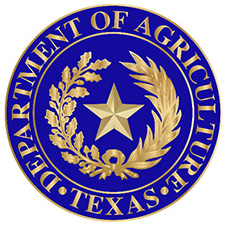Migrant farmworkers feed America, and they’re at high risk for a coronavirus outbreak
(FERN Network) Every day, throughout California’s major agricultural regions, thousands of farmworkers are still piling into dusty vans and buses to be driven to fields and orchards. There, they move through rows of lettuce and onions, strawberries and spinach, often in dense groups, to tend and harvest the food that Americans depend on.
In the coming weeks, thousands more laborers will arrive in other growing centers across the nation, from Washington’s Yakima Valley to the coastal plains of North Carolina and Georgia. These workers and their advocates say that many of the farmers who employ them have provided virtually no information on how they can protect themselves, their co-workers and their families from the coronavirus — creating the potential for a massive public-health and food-security crisis.
There are some 2.4 million farmworkers in the U.S. Of those, anywhere between 47 and 70 percent are undocumented. Roughly another 200,000 come seasonally on an H-2A guestworker visa, which was thrown into disarray last week when the U.S. closed its embassy and consulates in Mexico.
The precautions recommended by the Centers for Disease Control and Prevention are virtually impossible to carry out on many farms. Fields and orchards provide plenty of space for social distancing, but labor camps and transportation tend to be unsanitary and crowded. Depending on the size of the farm, a single housing unit can hold 200 workers or more. There are no federal guidelines governing what a farmer should do if they don’t have space to quarantine sick workers or how those who may have the virus can access affordable health care services.
“Workers are petrified,” said Armando Elenes, secretary treasurer of the United Farm Workers, the nation’s largest farmworkers union. “The majority of them don’t have health care, have little or no sick pay and don’t have a safety net.”
Earlier this month, Elenes conducted an informal survey through private UFW social media channels, asking how many workers had been provided information about the coronavirus by their employers. Ninety percent of the 277 respondents said they had received no information at all. Thinking the result was a fluke, he repeated the poll — and got the same response. One respondent said he was told by his employer, “En boca cerrada no entran moscas.” Translation: “Flies can’t get into mouths that are closed.”
Reyna Lopez Osuna, executive director of Pineros y Campesinos Unidos del Noroeste in Oregon, which represents about 7,000 workers, has heard the same thing from her members. “Site supervisors aren’t giving additional training or instructions for disinfection protocols or social distancing,” she said. In addition, workers aren’t being told they should quarantine themselves for 14 days if they feel sick, even though this information is essential for infection control.
On March 17, Elenes and and UFW President Teresa Romero emailed major non-union growers and farm bureaus across the country. The message urged them to ensure the safety of workers through several measures, including extended sick pay and sick leave, offering day care and flexibility to accommodate school closures, and training workers on best practices for avoiding infection.
As this article went to press, not one grower or trade association had responded to the letter. Separate calls by FERN and HuffPost to the American Farm Bureau Federation, the largest grower trade group, and the Western Growers, which represents produce and nut farmers in four states, including California, were not returned.











